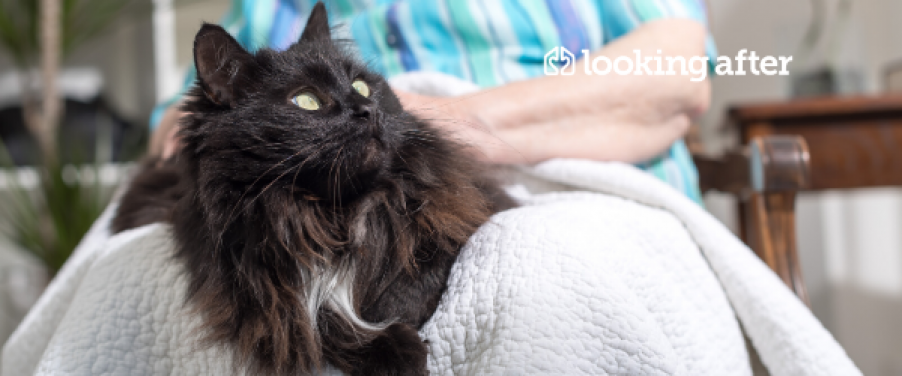What is pet therapy and can it help a dementia patient?
How does pet therapy work?
Pet therapy has gained more attention over the years as it is a way of making an environment more home like. Pets such as dogs and cats are understood to have a calming effect on people and can also help with feelings of loneliness, isolation and even boredom. It’s not just a feel good factor either, research has shown that pets in dementia care can have a significantly positive impact. By introducing a pet to a dementia patient, research has shown that it can alleviate the symptoms of depression and anxiety, as well as reducing the patient’s blood pressure.
What if you don’t have a pet at home?
There are some pilot schemes being run throughout the world, where trained dogs are given to families, where a dementia patient lives at home, with a carer. They are early stage patients, rather than being later into their dementia symptoms. See if you can access one of these trials in your area.
What can you do in a care home?
If your loved one is in a care home, find out whether you can bring a pet to the care home.There are some care homes that have their own pet, either a cat or a dog. Some are able to accommodate this and may even use pet therapy as part of the care delivery. Others may not be able to support this - although there may be issues with this in terms of patient’s allergies, so if the aren’t able to accommodate this directly within the home, perhaps they can do something within the grounds. They may even arrange visits with animals, but best to check with them as to what they can do.
How to access dementia pet schemes
If you are unable to gain access to pet therapy in either the dementia patient’s home or at their care home, it might be possible to access community dementia pet therapy. This could have a real benefit to someone if they have had dogs, or cats for most of their life, although may not be suitable if they have a pet allergy.
Alternatives to pet therapy
If access to a pet is not realistic for the dementia patient or pet allergies prevent it, then there are cuddle toys which may help to alleviate anxiety. Some of these toys are robotic toys and therefore more realistic. They also respond to being petted, stroked or hugged. The toys help the dementia patient to be more engaged and they can support communication and emotional well being of the dementia patient.
Summary
As we have covered in many articles, there are many different types of alternative therapy that support dementia patients care. The benefit to pet therapy for a dementia patient is that the therapy acts as a good alternative to medication. It can also help to calm a patient, or relieve symptoms of anxiety or depression. On top of this, pet therapy can help support the dementia patient to remain social and aid with their communication. For more information on the types of pets involved in pet therapy and their benefits, see our article here
Advice and articles





